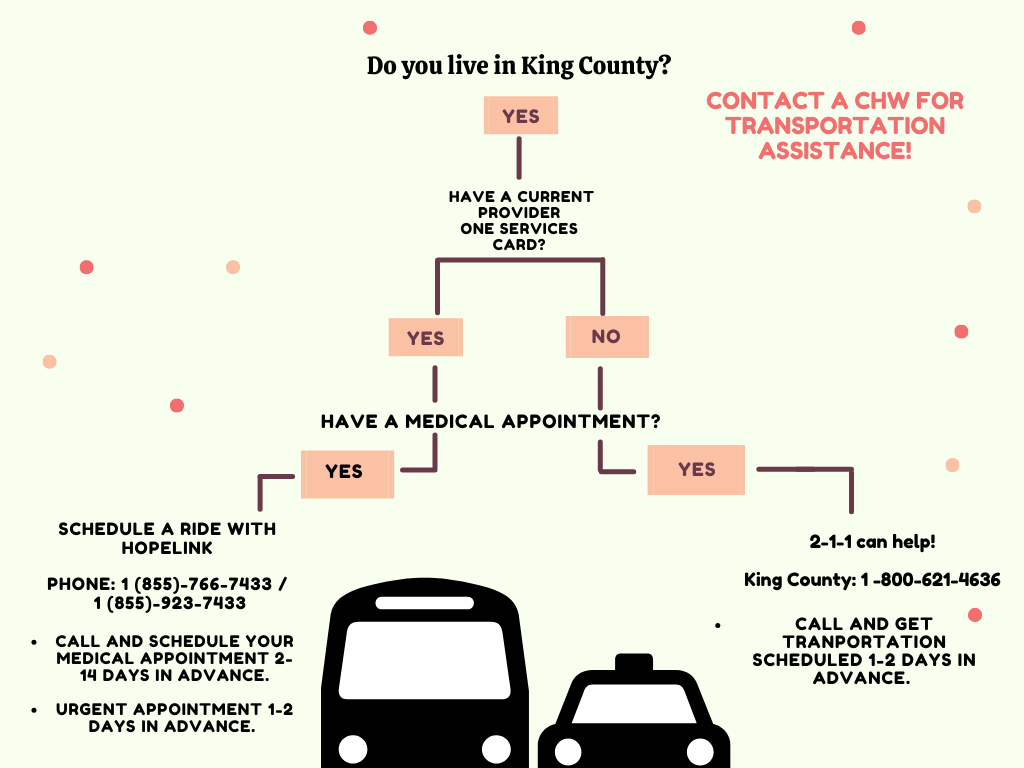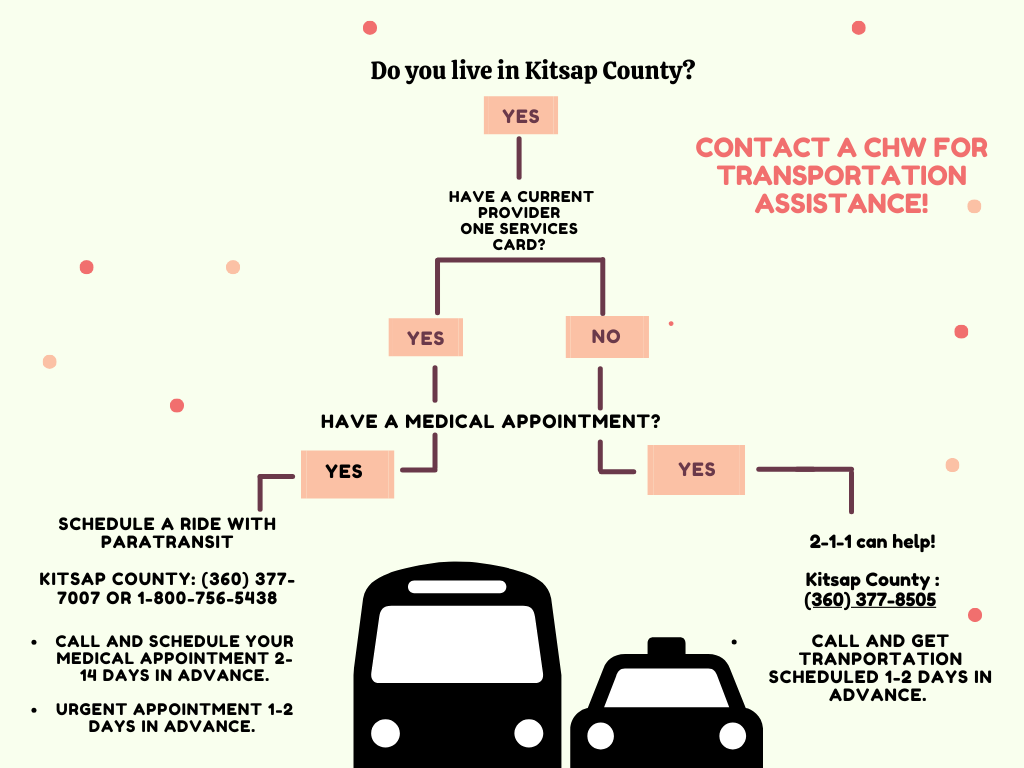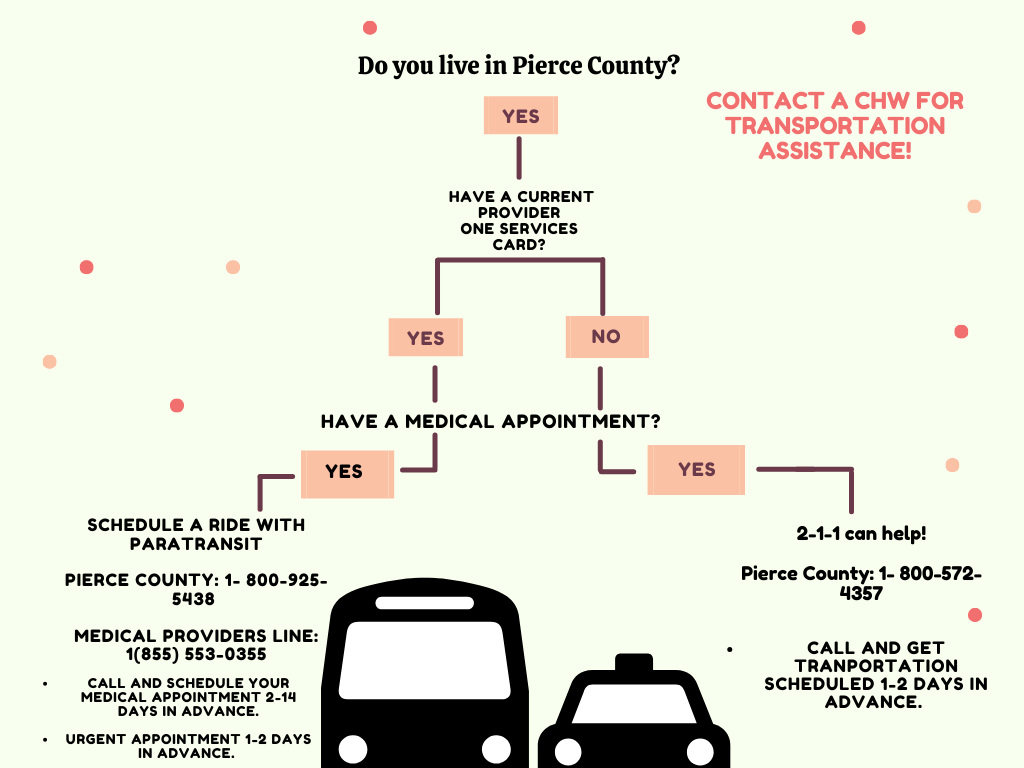
Access to healthcare is a fundamental aspect of health equity, ensuring that all individuals, regardless of their socioeconomic status, have the opportunity to be the healthiest version of themselves is paramount. Transportation access plays a critical role in this. For many families, especially those in rural and underserved communities, reliable transportation is a significant barrier to accessing timely and necessary healthcare services. This issue is vital in pediatric care, where regular check-ups, vaccinations, and early medical interventions are crucial for healthy development. How does transportation access affect pediatric care? And how can Pediatrics Northwest be a helpful resource for families facing these challenges?
The Importance of Transportation in Healthcare Access
Reliable transportation is crucial for families to access healthcare services. Without it, several issues may arise:
- Missed Appointments: In 2017, approximately 5.8 million individuals in the United States delayed medical care due to transportation issues.
PMC - Increased Health Risks: Delays in medical care can exacerbate health conditions, especially in children who need constant monitoring and treatment.
- Financial Strain: Families without access to affordable transportation may have higher costs using alternative means therefore adding financial burdens.
Certain populations are more affected by transportation barriers:
- Economic Disparities: Individuals with lower family incomes report higher instances of forgoing healthcare due to transportation issues.
RWJF - Racial and Ethnic Minorities: Black families (8%) and Latinx families adults (6.9%) are more likely to delay medical care because of transportation challenges compared to White families(4.8%).
CDC - Individuals with Disabilities: Families who have individuals with disabilities are more than three times as likely to skip medical care due to transportation concerns.
RWJF
Impact on Pediatric Care
Transportation barriers have a profound impact on pediatric care, affecting both immediate and long-term health outcomes for children. The inability to access timely healthcare can lead to poor health outcomes:
- Delayed or Missed Routine Check-Ups: Regular check-ups are crucial for monitoring a child’s development and catching potential health issues early. Children in households with transportation barriers are more likely to miss these routine visits, increasing the risk of undiagnosed health problems. (Syed, 2014)
- Higher Emergency Room (ER) Visits: When primary care is inaccessible, families often turn to emergency services for non-emergency issues. Children with limited transportation options are more likely to go to the ER for conditions that could have been treated by their pediatrician. (rand.org)
- Missed Follow-Up Appointments: Children with chronic conditions, such as asthma or diabetes, require frequent follow-ups to manage their health effectively. Missing these appointments due to transportation issues can lead to worsening conditions and increased hospitalization. Transportation challenges are a significant barrier to follow-up care, particularly for low-income families. (Syed, 2014)
- Vaccination Delays: Timely vaccinations are essential for preventing childhood diseases. Transportation barriers are linked to delayed vaccination schedules, leaving children vulnerable to preventable illnesses. (Wagner, 2022)
- Mental Health Impacts: Access to mental health services is also hindered by transportation issues. Children in rural areas or underserved urban communities face significant obstacles in accessing mental health care, leading to untreated anxiety, depression, and other conditions. (Morales, 2020)
County Specific
Transportation barriers significantly impact pediatric healthcare access in King, Pierce, and Kitsap counties. Local studies and reports highlight these challenges:
King County
- Transportation Costs: A study from the University of Washington identified transportation costs as a major barrier affecting individual and population health in King County.
Digital Library of Washington
Pierce County
- Access to Healthcare: The Tacoma-Pierce County Health Department (TPCHD) reports that transportation is a significant barrier preventing residents from accessing healthcare services, leading to missed appointments and delayed care.
Tacoma-Pierce County Health Department - Community Health Needs: The Pierce County Community Health Needs Assessment identifies transportation barriers as a critical issue affecting residents’ ability to receive timely medical care.
Washington State Department of Health
Kitsap County
- Transportation Challenges: Cares of Washington highlights that inadequate transit systems in Kitsap County often result in clients being unable to reach their destinations, including healthcare appointments.
Cares of Washington
Addressing transportation barriers to healthcare requires collaborative efforts from our community partners. Gabrielle “Gabby” Ward, a dedicated Community Health Worker, recognized the need for a practical tool to help families in King, Pierce, and Kitsap counties access the transportation they need for medical appointments. Gabby developed a transportation flow sheet that can be used to assist families and PedsNW medical staff. This flow sheet simplifies the process by outlining key steps and providing contact information for community transportation services to help families overcome transportation barriers.



With these flow sheets, families can more easily identify available transportation options. Being able empowers families with the knowledge and tools needed to access timely healthcare services and improve their overall health outcomes. Transportation is a critical factor in ensuring equitable access to healthcare, particularly for pediatric care in underserved communities. Pediatrics Northwest believes that healthcare access should not be limited by transportation. Resources like Gabby’s flow sheet offer valuable solutions for families in King, Pierce, and Kitsap counties. By addressing transportation challenges, we can improve health outcomes, reduce missed appointments, and support the well-being of children and families in these communities.
Sources:
Morales DA, Barksdale CL, Beckel-Mitchener AC. A call to action to address rural mental health disparities. J Clin Transl Sci. 2020 May 4;4(5):463-467. doi: 10.1017/cts.2020.42. PMID: 33244437; PMCID: PMC7681156.
Syed ST, Gerber BS, Sharp LK. Traveling towards disease: transportation barriers to health care access. J Community Health. 2013 Oct;38(5):976-93. doi: 10.1007/s10900-013-9681-1. PMID: 23543372; PMCID: PMC4265215.
Wagner NM, Dempsey AF, Narwaney KJ, Gleason KS, Kraus CR, Pyrzanowski J, Glanz JM. Addressing logistical barriers to childhood vaccination using an automated reminder system and online resource intervention: A randomized controlled trial. Vaccine. 2021 Jun 29;39(29):3983-3990. doi: 10.1016/j.vaccine.2021.05.053. Epub 2021 May 28. PMID: 34059372; PMCID: PMC8237696.
Related Stories


